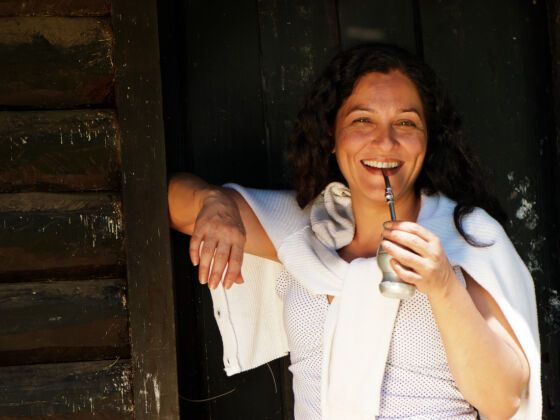El Rosedal is in the centre of Montevideo’s Parque Prado. It consists of a long, iron arbour draped with vines and roses and leads to a marble pergola. Doric columns encircle an old brass fountain.
Juan has brought me here. A tall, lanky boy with a shy smile, he’s a salsa dancer I met last night. It had taken an hour of coy eye contact before he ushered me onto the dance floor. One dance turned into ten; the night ended with a long conversation and a promise to meet again.
